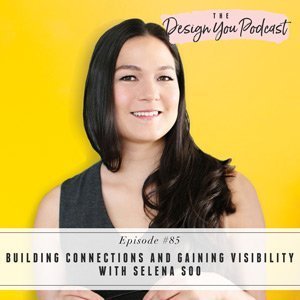
I hope you’ve been enjoying the last few episodes of the show. I’ve had an amazing lineup of absolute powerhouse women to talk about their expertise, and today’s guest is no exception. Selena Soo is my publicist and she is a publicity and marketing strategist for visionary entrepreneurs, experts, and authors who want to reach millions with their message.
She’s talking us through the importance of publicity for your business, and how to stand out in a bigger way to gain visibility for yourself using actionable steps. Her approach comes down to forming powerful and long-lasting relationships, and she’s sharing her deep insight on how to connect with influencers and even become one, if that’s a goal of yours.
Join us on the podcast today for a bunch of practical tips and useful advice Selena has to share on how to make the most of your publicity opportunities. Her knowledge is invaluable and I feel so lucky to be working with her one-on-one to grow my own business to new levels!
If you want to keep this conversation going, you have to join my free Design You Podcast community on Facebook. We have great conversations over there about the podcast episodes and our podcast guests are in there too! So head on over and I’ll see you there!





